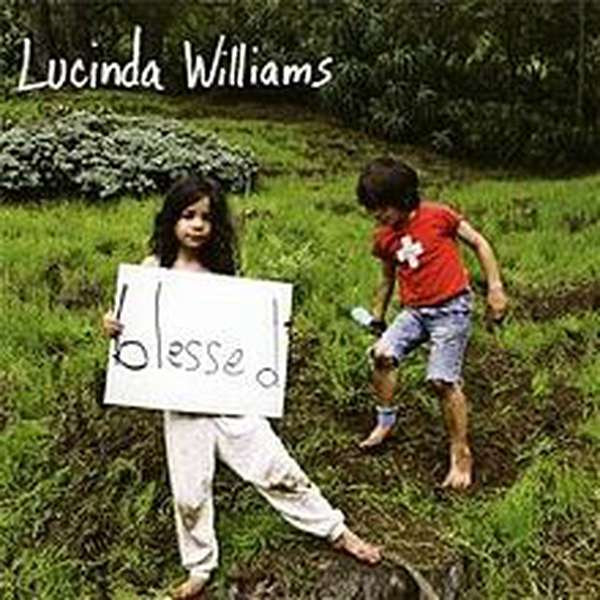Over twenty-two years and ten studio albums Lucinda Williams has made a name for herself. She has a number of career achievements, but this isn’t Wikipedia, it’s the review section. Hell, I’m going to come right out and say it: I’m not that familiar with Lucinda Williams’ discography. Don’t expect any Car Wheels on a Gravel Road comparisons here. Instead, Blessed will just have to speak for itself, without the comparisons to older material.
Starting out with “Buttercup,” Williams sets a misleading positive tone. While the song is among the few upbeat numbers on the record, the majority of Blessed is filled with slow-paced, dreary laments about downtrodden characters. As a singer-songwriter, Williams writes a reliable character, using varied perspectives and life experiences to seek out universal emotions. Similarly, her detailed imagery gives a true Americana feel that exceeds mere genre labels. The writing focuses on picturesque characters: rose peddlers, dying soldiers, and kids on bicycles, exemplified perfectly in the standout title track, “Blessed.” While somber, country-tinged guitars and her distinct delivery recall images of dim barrooms and cloudy eyes, her lyrics generally focus on the eternal optimism that keeps one fighting through hard times: images such as green grass poking through the brush. Williams captures the human spirit and presents it through a lens shrouded in misery, but with a tone of escape and redemption that isn’t as negative as it first appears.
Musically, she blends several common styles for a solo artist, hitting on country, folk, Americana, and rock. The majority of the tracks are built around her strong voice and her lyricism, with primarily acoustic guitars. Every so often, a rock guitar is thrown into the mix—courtesy of Elvis Costello—and the variation of styles adds depth to the album as a whole. “Seeing Black” is anything but a rocker, but the driving electricity in the song gives a renewed sense of energy and urgency to Blessed’s message at a critical point, and the record could have used an additional boost later on. The songs toward the end are far from throwaway, but the pacing drifts over the final third and it demands less attention.
There a several variations of the man/woman/child-with-sign album cover, and the deluxe version comes with a bonus Kitchen Tapes disc including acoustic demos of the songs. Kitchen Tapes stands well on its own, with a little more rasp, and a little less slur to her delivery. The acoustic versions may be stripped down, but the heart of Williams’ songwriting is her lyrical tone and direction, which stands well regardless of the accompaniment. The toned down instrumentation and the vocal imperfections add a vulnerable, personal quality. Unlike a lot of throw-in bonus discs, this one is worth listening to, and the songs are pretty clean for being labeled as demos.



